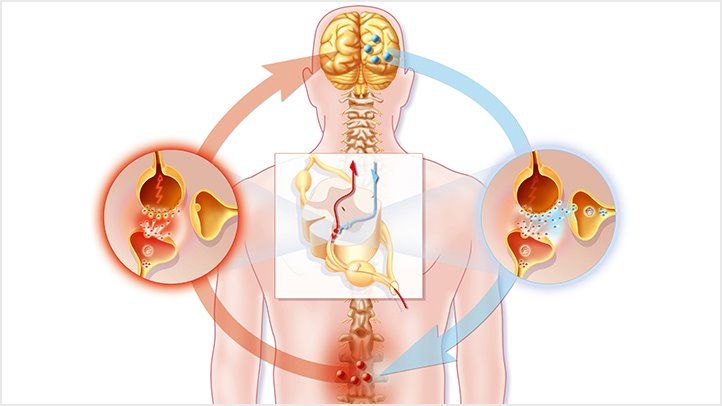Neuropathy refers to damage or dysfunction of one or more nerves, often resulting in pain, numbness, tingling, or weakness. Neuralgia, a type of neuropathic pain, manifests as sharp, stabbing, or burning pain along the path of a nerve. Managing neuralgia due to neuropathy involves understanding its causes, symptoms, and effective treatment strategies. This comprehensive guide explores neuralgia associated with neuropathy and provides insights into managing and seeking specialized care from a neurologist in Whitefield.
Understanding Neuropathy and Neuralgia
Neuropathy can arise from various causes, including:
- Diabetes: Diabetic neuropathy is a common complication of diabetes mellitus.
- Trauma or Injury: Physical trauma or injury to nerves.
- Autoimmune Diseases: Conditions like multiple sclerosis or Guillain-Barré syndrome.
- Infections: Viral or bacterial infections affecting nerves.
- Toxins: Exposure to toxins, such as chemotherapy drugs or alcohol.
- Genetic Factors: Inherited disorders affecting nerve function.
Neuralgia, specifically, refers to intense, shooting pain along the affected nerve pathway, often triggered by touch or movement.
Symptoms of Neuralgia Due To Neuropathy
The symptoms of neuralgia can vary depending on the nerves affected and the underlying cause of neuropathy. Common symptoms include:
- Sharp, stabbing pain: Often described as electric shocks or shooting pain.
- Burning or tingling sensation: Along the path of the affected nerve.
- Numbness or loss of sensation: In the affected area.
- Increased sensitivity: Even to light touch or temperature changes.
- Muscle weakness: Difficulty moving or using affected muscles.
Diagnosis and Evaluation
Diagnosing neuralgia due to neuropathy involves a thorough evaluation by a healthcare professional, typically a neurologist. Diagnostic procedures may include:
- Medical History: Reviewing symptoms, medical conditions, and potential risk factors.
- Physical Examination: Assessing neurological function, reflexes, and sensory responses.
- Electrodiagnostic Tests: Nerve conduction studies (NCS) and electromyography (EMG) to measure nerve function.
- Imaging Studies: MRI or CT scans to identify structural abnormalities or compressions.

Treatment Options for Neuralgia Due To Neuropathy
Treatment focuses on managing symptoms, addressing underlying causes, and improving quality of life. Effective strategies may include:
1. Medications:
- Pain Relievers: Over-the-counter medications like acetaminophen or nonsteroidal anti-inflammatory drugs (NSAIDs).
- Antidepressants: Tricyclic antidepressants (amitriptyline) or serotonin-norepinephrine reuptake inhibitors (SNRIs) to manage nerve pain.
- Anticonvulsants: Gabapentin or pregabalin to reduce neuropathic pain.
2. Therapy:
- Physical Therapy: Exercises to improve strength, flexibility, and balance, addressing functional limitations.
- Occupational Therapy: Techniques to manage daily tasks and reduce discomfort.
3. Procedures:
- Nerve Blocks: Injecting local anesthetics or steroids near affected nerves to block pain signals.
- Transcutaneous Electrical Nerve Stimulation (TENS): Device that delivers mild electrical currents to nerves to relieve pain.
4. Lifestyle Modifications:
- Healthy Diet: Managing underlying conditions like diabetes through diet and lifestyle changes.
- Pain Management Techniques: Stress reduction, relaxation techniques, and adequate sleep.
Seeking Care From a Neurologist in Whitefield
For individuals experiencing persistent or severe neuralgia due to neuropathy, consulting a neurologist in Whitefield is essential for specialized evaluation and treatment. Neurologists are trained to diagnose and manage disorders affecting the nervous system, offering expertise in:
- Comprehensive Evaluation: Thorough assessment of symptoms, diagnostic testing, and interpretation of results.
- Personalized Treatment Plans: Tailored approach to address individual needs, optimize symptom management, and improve quality of life.
- Advanced Therapies: Access to cutting-edge treatments, including medications, procedures, and therapeutic interventions.
Conclusion: Managing Neuralgia Due To Neuropathy
Neuralgia associated with neuropathy can significantly impact daily life, but proactive management and specialized care can alleviate symptoms and improve overall well-being. By understanding the causes, symptoms, and treatment options outlined in this guide, individuals can take proactive steps towards managing neuralgia effectively.
If you or someone you know experiences symptoms of neuralgia due to neuropathy, don’t hesitate to schedule a consultation with a neurologist in Whitefield. Early intervention and comprehensive care can make a significant difference in managing nerve pain and achieving better health outcomes.





